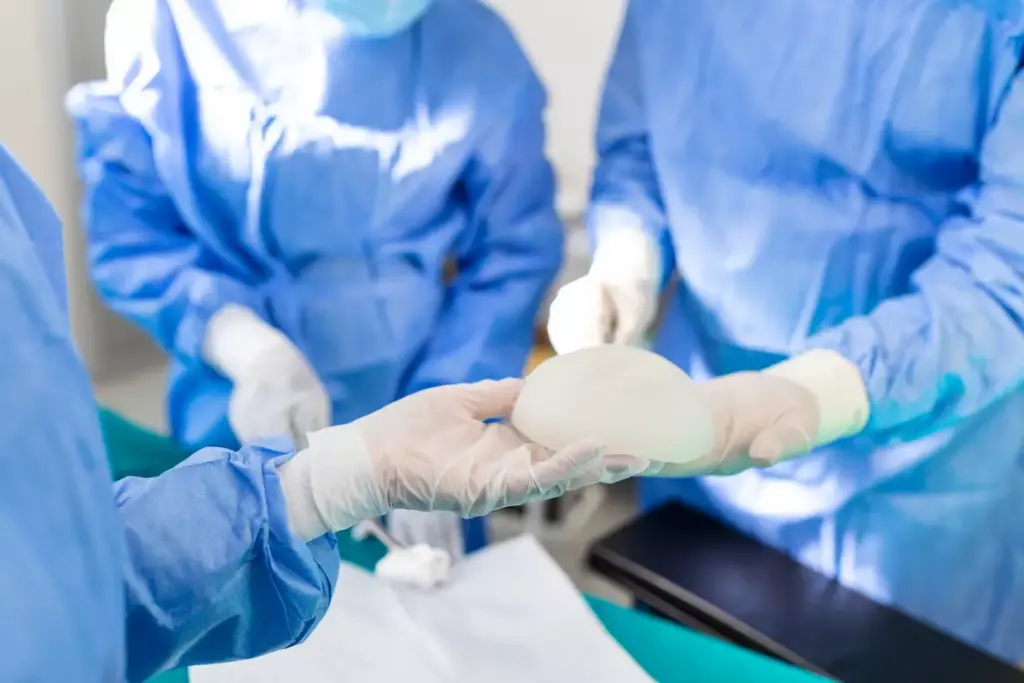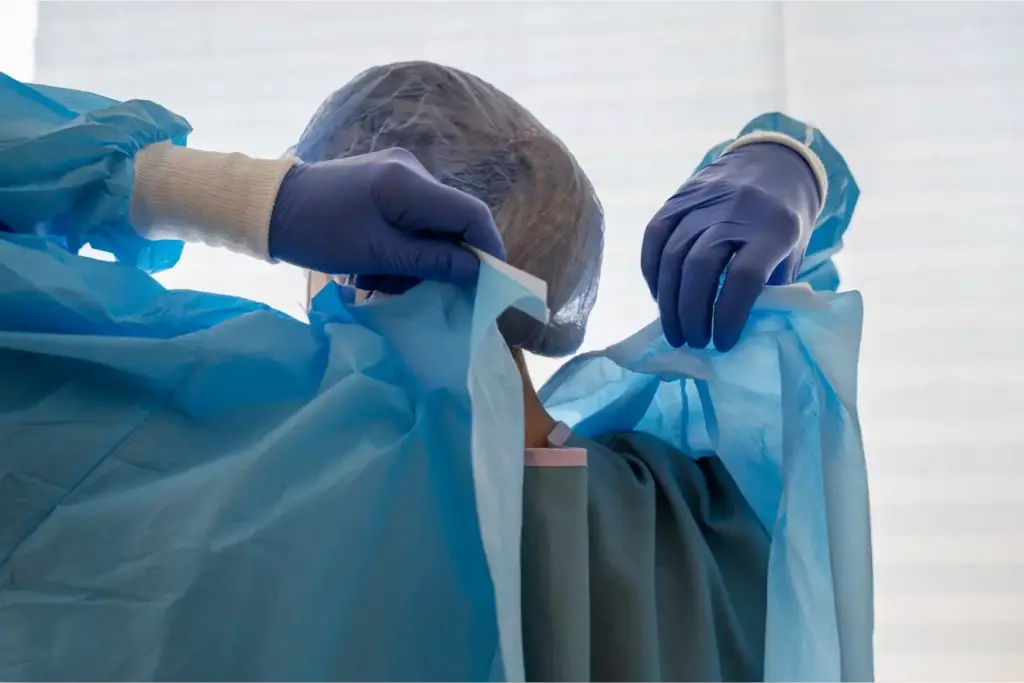
Obstetricians and gynecologists (OB-GYNs) are experts in women’s reproductive health. They handle pregnancy and childbirth. They are trained to perform surgery, which is key in women’s healthcare. Every year, over 88 million OB/GYN surgeries happen worldwide, with 6.9 million in the United States.
At Liv Hospital, our OB-GYNs offer both surgery and holistic care. They provide full support to their patients. Their role goes beyond surgery, covering many important aspects of women’s health.
Key Takeaways
- OB-GYNs are trained surgeons who perform a significant number of surgical procedures annually.
- Their role encompasses not just surgery, but also holistic care and patient support.
- OB-GYNs play a vital role in women’s healthcare, covering reproductive health, pregnancy, and childbirth.
- Liv Hospital’s OB-GYNs are committed to providing world-class healthcare with complete support.
- The scope of an OB-GYN’s responsibilities is broad and multifaceted.
Understanding the OB-GYN Medical Specialty
OB-GYNs play a key role in women’s health. They provide preventive care, diagnose, and treat reproductive issues. This is vital for women’s health from adolescence to menopause and beyond.
Defining Obstetrics and Gynecology
OB-GYN is a mix of obstetrics and gynecology. Obstetrics deals with pregnancy, childbirth, and postpartum care. Gynecology focuses on the female reproductive system’s health, including treating disorders and diseases.
A study on the National Institutes of Health’s website (https://pmc.ncbi.nlm.nih.gov/articles/PMC7391913/) shows OB-GYNs do more than surgery. They also provide preventive care and educate patients.
The Scope of Women’s Reproductive Healthcare
OB-GYNs offer a wide range of care. This includes routine check-ups, prenatal care, and delivery services. They also diagnose and treat reproductive health issues like menstrual disorders and endometriosis.
The Evolution of the OB-GYN Profession
The OB-GYN field has grown a lot over time. Advances in technology and understanding women’s health have improved. Today, OB-GYNs are skilled in surgery and preventive care.
The profession has expanded its services. Now, OB-GYNs perform minimally invasive surgeries and manage complex conditions during pregnancy.
| Aspect of Care | Description | Significance |
|---|---|---|
| Preventive Care | Routine check-ups, screenings, and health education | Early detection and prevention of health issues |
| Prenatal Care | Monitoring and managing health during pregnancy | Ensuring the health and well-being of mother and baby |
| Surgical Interventions | Cesarean deliveries, hysterectomies, and other surgeries | Treatment of conditions requiring surgical expertise |
Can OB-GYN Do Surgery? The Surgical Role Explained
OB-GYNs are experts in women’s reproductive health. They are trained to do many surgeries, like cesarean deliveries. Their ability to do surgery is key to their work, helping them care for their patients fully.
The Surgical Training of OB-GYNs
OB-GYNs get a lot of training in surgery during their residency. They learn both the theory and the hands-on skills needed for surgery. They practice many surgeries, including:
- cesarean deliveries
- hysterectomies
- laparoscopic surgeries
- other minimally invasive procedures
This training gets OB-GYNs ready for the surgeries they might do. It makes sure they can give top-notch care to their patients.
Surgical Competencies Required for Certification
To get certified, OB-GYNs must show they can do surgery well. They need to know how to:
- do surgeries safely and right
- use surgical techniques and principles
- handle surgery problems
- take care of patients before and after surgery
They are tested through exams, skills checks, and reviews of their work during residency.
Why Surgery is a Core Component of OB-GYN Practice
Surgery is a big part of OB-GYN work. It lets them treat many health issues in women. Surgery can save lives, like in cases of ectopic pregnancies or severe bleeding during birth.
It also helps improve life for women with problems like uterine fibroids or endometriosis. By doing surgery, OB-GYNs can meet all their patients’ health needs. This is key for top-notch women’s healthcare.
Common Surgical Procedures Performed by OB-GYNs
OB-GYNs are skilled in a wide range of surgeries for women’s health. They handle many reproductive health issues, from pregnancy complications to corrective surgeries.
Cesarean Deliveries: When and Why
Cesarean deliveries, or C-sections, are common among OB-GYNs. They deliver babies through the abdomen and uterus. This is needed when a vaginal delivery is not safe.
The choice for a C-section is based on the mother and baby’s health. While it can save lives, it also has risks like infection and blood clots.
Hysterectomy: Types and Approaches
A hysterectomy removes a woman’s uterus. It’s done for issues like fibroids, endometriosis, and cancer. There are different types, each for specific reasons.
The surgery can be done through the abdomen, vagina, or laparoscopically. The method depends on the condition, the patient’s health, and the surgeon’s skill.
Laparoscopic Procedures and Minimally Invasive Surgery
Laparoscopic surgery is done through small incisions with a laparoscope. It’s used for conditions like endometriosis and ovarian cysts.
This method has benefits like less pain, quicker recovery, and less scarring. But, it needs special training and tools.
| Surgical Procedure | Indications | Benefits | Risks |
|---|---|---|---|
| Cesarean Delivery | Fetal distress, placenta previa, previous uterine surgery | Lifesaving, controlled delivery | Infection, blood clots, future pregnancy complications |
| Hysterectomy | Uterine fibroids, endometriosis, certain cancers | Treatment of underlying conditions | Surgical risks, possible early menopause |
| Laparoscopic Surgery | Endometriosis, ovarian cysts, ectopic pregnancies | Less postoperative pain, shorter recovery, reduced scarring | Requires specialized training and equipment |
OB-GYNs perform many surgeries for women’s health. Knowing the reasons, benefits, and risks helps patients make better choices.
The Global Impact of OB-GYN Surgical Care
OB-GYN surgical care is very important, with millions of procedures done every year. It’s a key part of women’s healthcare, making a big difference in health worldwide.
88 Million Procedures Worldwide Annually
About 88 million surgeries are done by OB-GYNs globally each year. This shows how vital the ob gyn profession is for women’s health worldwide.
These surgeries include cesarean deliveries, hysterectomies, and laparoscopic surgeries. They show how important OB-GYNs are in treating women’s health issues.
The United States Perspective: 6.9 Million Annual Procedures
In the U.S., OB-GYNs do around 6.9 million surgeries each year. This highlights the big role obg specialists have in U.S. healthcare.
In the U.S., surgeries like cesarean deliveries and hysterectomies are common. They help manage women’s health issues, from reproductive problems to cancer.
| Procedure Type | Global Annual Procedures | U.S. Annual Procedures |
|---|---|---|
| Cesarean Deliveries | 30 million | 1.2 million |
| Hysterectomies | 7 million | 500,000 |
| Laparoscopic Surgeries | 15 million | 1 million |
Addressing Women’s Health Disparities Through Surgical Access
OB-GYN surgical care helps tackle women’s health disparities. It improves health outcomes, mainly in areas with less access to care. By ensuring everyone has access to ob gyn job information, we can reduce these disparities.
For more on the importance of surgical care in women’s health, check out this resource. It offers insights into OB-GYN care globally.
The ob gyn career is not just rewarding but also essential for women’s health. Understanding the global impact of OB-GYN surgical care helps us see the critical role these professionals play in improving health worldwide.
The Non-Surgical Responsibilities of OB-GYNs
OB-GYNs do more than just surgery. They give full care to women, covering many health needs at all ages.
Preventive Care and Annual Examinations
Preventive care is a big part of what OB-GYNs do. They do annual exams, like Pap smears and breast checks. These visits help spot health problems early and give advice on staying healthy.
They also talk about family planning, menstrual health, and any worries the patient has. This way, women get care that fits their unique needs.
Diagnosing and Treating Reproductive Disorders
OB-GYNs can find and treat many reproductive issues. They use medical history, physical checks, and tests to figure out what’s wrong. Then, they plan the best treatment.
Treatments can be medicines, lifestyle changes, or referrals to other doctors. This helps many women live better lives.
Pregnancy Management and Prenatal Care
Managing pregnancy is a key job for OB-GYNs. They give prenatal care, watching over the health of mom and baby. This includes regular visits, ultrasounds, and tests for any problems.
They also teach expectant moms about pregnancy, childbirth, and caring for a new baby. This helps them make smart choices for their health and their baby’s.
Patient Education and Counseling
Teaching patients is a big part of an OB-GYN’s job. They talk about many topics, like birth control, family planning, menopause, and sexual health. This helps women make good choices about their health.
Through these efforts, OB-GYNs are key in keeping women healthy throughout their lives.
Labor and Delivery: The OB-GYN’s Critical Role
The labor and delivery process is a critical time. OB-GYNs must be ready for any situation, from normal births to complex issues. We ensure the health of both mother and baby during this time.
Managing Normal Deliveries
OB-GYNs play a key role in managing normal deliveries. We watch the labor progress, offer support, and decide on interventions if needed. A normal delivery happens without complications and is vaginal.
Key aspects of managing normal deliveries include:
- Monitoring fetal heart rates and labor progress
- Providing pain management options
- Supporting the mother’s preferences for labor and delivery
Handling High-Risk Pregnancies and Complications
Not all pregnancies are the same. Some are high-risk due to health issues or complications. As OB-GYNs, we must identify and manage these pregnancies, often working with a team.
Some common complications during labor and delivery include:
| Complication | Description | OB-GYN’s Role |
|---|---|---|
| Fetal Distress | Signs of fetal distress, such as abnormal heart rate patterns | Monitor closely and decide on interventions, such as expedited delivery |
| Prolonged Labor | Labor that lasts longer than expected | Assess the cause and consider interventions, such as oxytocin augmentation |
| Placental Abruption | The placenta separates from the uterus before delivery | Diagnose and manage, potentially requiring immediate delivery |
The Decision-Making Process for Surgical Interventions
Deciding on surgical interventions, like cesarean sections, is a big part of our job. We make this decision after carefully evaluating the situation, considering the health of both mother and baby.
“The decision to perform a cesarean section is not taken lightly and is based on a thorough evaluation of the risks and benefits for both mother and baby.” –
Postpartum Care and Recovery
After delivery, we provide postpartum care. We ensure the mother recovers well and watch for any complications. This includes checking for infection, managing pain, and supporting her emotionally.
Effective postpartum care involves:
- Monitoring the mother’s physical recovery
- Providing guidance on newborn care
- Supporting the mother’s emotional well-being
Surprising Responsibilities and Lesser-Known Duties
OB-GYNs do more than just surgeries. They play a key role in women’s healthcare. Their duties are vital and often not well-known.
OB-GYNs as Primary Care Providers
OB-GYNs act as primary care doctors for women. They do routine check-ups and health screenings. They also give advice on staying healthy.
This care is key for catching health problems early. It helps prevent many issues. They focus on more than just reproductive health. They address a wide range of women’s health needs.
Mental Health Screening and Support
Mental health is very important, and OB-GYNs check for it during pregnancy and after. They can spot depression and anxiety and offer help. They also refer women to specialists if needed.
This support is vital for new moms who might be struggling with mental health.
Managing Complex Medical Conditions During Pregnancy
Pregnancy can make existing health issues worse. OB-GYNs are experts at handling these problems. They work with other doctors to care for women with conditions like diabetes or high blood pressure.
This teamwork helps reduce risks and aims for the best outcomes.
Advocacy and Public Health Roles
OB-GYNs also work on improving women’s health on a big scale. They push for policies and practices that help women. This work is key to fixing health gaps and making sure everyone has access to care.
In summary, OB-GYNs have many roles that are vital for women’s health. By knowing these duties, we can see how much they do for us.
Specialized Surgical Paths Within OB-GYN
OB-GYN has many paths for surgical specialization. Medical professionals value advanced training for better patient care. OB-GYNs can specialize to improve their skills and help the field.
Becoming a Gynecologic Surgeon
Gynecologic surgery is key in OB-GYN, focusing on women’s reproductive health. To be a gynecologic surgeon, one needs extra training after residency. This training prepares surgeons for complex surgeries like hysterectomies and laparoscopic procedures.
Key aspects of gynecologic surgical training include:
- Advanced laparoscopic techniques
- Oncologic surgery principles
- Reconstructive surgery methods
Obstetrical Surgical Specialization
Obstetrical surgery deals with pregnancy and childbirth. It includes cesarean deliveries and other pregnancy surgeries. Obstetrical surgeons handle high-risk pregnancies and make urgent decisions.
“The art of obstetrical surgery lies in balancing the need for intervention with the safety of both mother and child.” – Expert in Obstetrics
Advanced Surgical Subspecialties
OB-GYNs can specialize further in urogynecology, fetal surgery, and gynecologic oncology. These require fellowship training and a commitment to medical knowledge.
| Subspecialty | Focus Area | Typical Procedures |
|---|---|---|
| Urogynecology | Pelvic floor disorders | Slings, prolapse repairs |
| Fetal Surgery | In-utero fetal interventions | Fetal myelomeningocele repair |
| Gynecologic Oncology | Cancer of female reproductive system | Hysterectomies, lymph node dissections |
Specialized surgical paths in OB-GYN improve surgeon skills and patient care. As medical technology advances, the role of specialized OB-GYN surgeons grows more important.
Education, Training, and Career Path of OB-GYN Surgeons
Becoming an OB-GYN surgeon is a long and challenging journey. It involves years of studying and training. We will look at the different stages, from medical school to getting certified.
Medical School and Residency Requirements
To start, one must complete four years of medical school. This earns a Doctor of Medicine (M.D.) or Doctor of Osteopathic Medicine (D.O.) degree. After that, a four-year residency in obstetrics and gynecology is needed.
In this residency, they learn by doing. They get experience in both surgery and non-surgical parts of the field. The residency is accredited by the Accreditation Council for Graduate Medical Education (ACGME).
Residents work with experienced OB-GYN surgeons. They start with simple tasks and get more responsibility as they go.
Fellowship Training Options
After residency, some choose to do fellowship programs. These last one to three years. They focus on areas like gynecologic oncology or reproductive endocrinology.
Fellowship training helps surgeons become experts in a specific area. It also prepares them for leadership roles.
Board Certification and Continuing Education
To work as an OB-GYN surgeon, one must get certified by the American Board of Obstetrics and Gynecology (ABOG). This involves passing a tough exam. It shows a surgeon’s knowledge and skills.
To keep certification, surgeons must keep learning. They do continuing medical education (CME) and follow the ABOG’s maintenance of certification (MOC) program. This keeps them up-to-date with new medical knowledge.
Career Outlook and Professional Development
The job outlook for OB-GYN surgeons is good. The Bureau of Labor Statistics says there will be more jobs in women’s healthcare. Employment is expected to grow 3% from 2020 to 2030.
| Career Stage | Typical Duration | Key Activities |
|---|---|---|
| Medical School | 4 years | Classroom instruction, clinical rotations |
| Residency | 4 years | Hands-on training, patient care, surgical skills |
| Fellowship (optional) | 1-3 years | Advanced training in a subspecialty |
| Board Certification | Ongoing | Initial certification, maintenance of certification |
The journey to becoming an OB-GYN surgeon is long and demanding. It requires a lot of education, training, and dedication. Understanding this journey helps us appreciate the care and expertise OB-GYN surgeons provide.
“The art of medicine is long to learn, and life is short.” – Hippocrates
This saying shows the lifelong commitment to learning in OB-GYN surgery. As medical knowledge and technology change, OB-GYN surgeons lead in women’s healthcare. They offer caring and expert care to their patients.
Conclusion: The Multifaceted Role of Modern OB-GYNs
We’ve looked at what OB-GYNs do, from routine care to surgeries. They are key in keeping women healthy. OB-GYNs offer many services to meet different needs.
OB-GYNs do more than surgeries. They diagnose and treat health issues, manage pregnancies, and teach patients. This shows how complex their job is.
OB-GYNs are all about care, compassion, and medical skill. They help women stay healthy with their wide range of services. This makes their work very important for women’s health.
In short, OB-GYNs are essential for women’s health. Their work is varied and complex. We value their role in giving top-notch care to women.
What does OB-GYN stand for?
OB-GYN stands for Obstetrician-Gynecologist. This is a doctor who focuses on women’s health. They deal with pregnancy, childbirth, and reproductive health.
Do OB-GYNs perform surgery?
Yes, OB-GYNs can do surgery. They perform cesarean deliveries, hysterectomies, and laparoscopic surgeries.
What is the scope of care provided by OB-GYNs?
OB-GYNs offer a wide range of care. This includes preventive care, diagnosing and treating reproductive disorders. They also manage pregnancies and educate patients.
Are OB-GYNs surgeons?
Yes, OB-GYNs are surgeons. They are qualified to do various surgeries related to women’s health.
What kind of surgical training do OB-GYNs receive?
OB-GYNs get thorough surgical training in their residency. They gain hands-on experience in many surgical procedures.
Can OB-GYNs manage high-risk pregnancies?
Yes, OB-GYNs can handle high-risk pregnancies. They are trained to manage complications during pregnancy, childbirth, or after birth.
What is the role of OB-GYNs in labor and delivery?
OB-GYNs are key in labor and delivery. They manage normal deliveries and handle high-risk pregnancies. They also decide on surgical interventions.
Do OB-GYNs provide primary care?
Yes, OB-GYNs often act as primary care providers for women. They do routine check-ups, health screenings, and preventive care.
Can OB-GYNs perform laparoscopic surgeries?
Yes, many OB-GYNs can do laparoscopic surgeries. These are minimally invasive procedures that use small incisions and a camera.
What is the importance of OB-GYNs in women’s health?
OB-GYNs are vital for women’s health. They provide essential care and services. This helps promote healthy outcomes and address health disparities.
Are there specialized surgical paths within OB-GYN?
Yes, there are specialized surgical paths in OB-GYN. These include becoming a gynecologic surgeon or specializing in obstetrical surgery. There are also advanced surgical subspecialties.
What is the education and training required to become an OB-GYN?
To become an OB-GYN, one must complete medical school and residency. They also need to get board certification. Optional fellowship training is available for specialized areas
References
- May 2023 National Occupational Employment and Wage Estimates – U.S. Bureau of Labor Statistics (29‑1218 Obstetricians and Gynecologists). Retrieved from https://www.bls.gov/oes/2023/may/oes_nat.htm (Bureau of Labor Statistics)
- Blears, E. E., Pham, N. K., & Bauer, V. P. (2020). A systematic review and meta‑analysis of valued obstetric and gynecologic (OB/GYN) procedures in resource‑poor areas. Surg Open Sci, 2(3), 127‑135. PMCID PMC7391913. Retrieved from https://www.pmc.ncbi.nlm.nih.gov/articles/PMC7391913/ (PMC)
- Global PMC: [Assumed article on OB/GYN trends in surgical care] gpm.amegroups.org article. Retrieved from https://gpm.amegroups.org/article/view/9648/html











